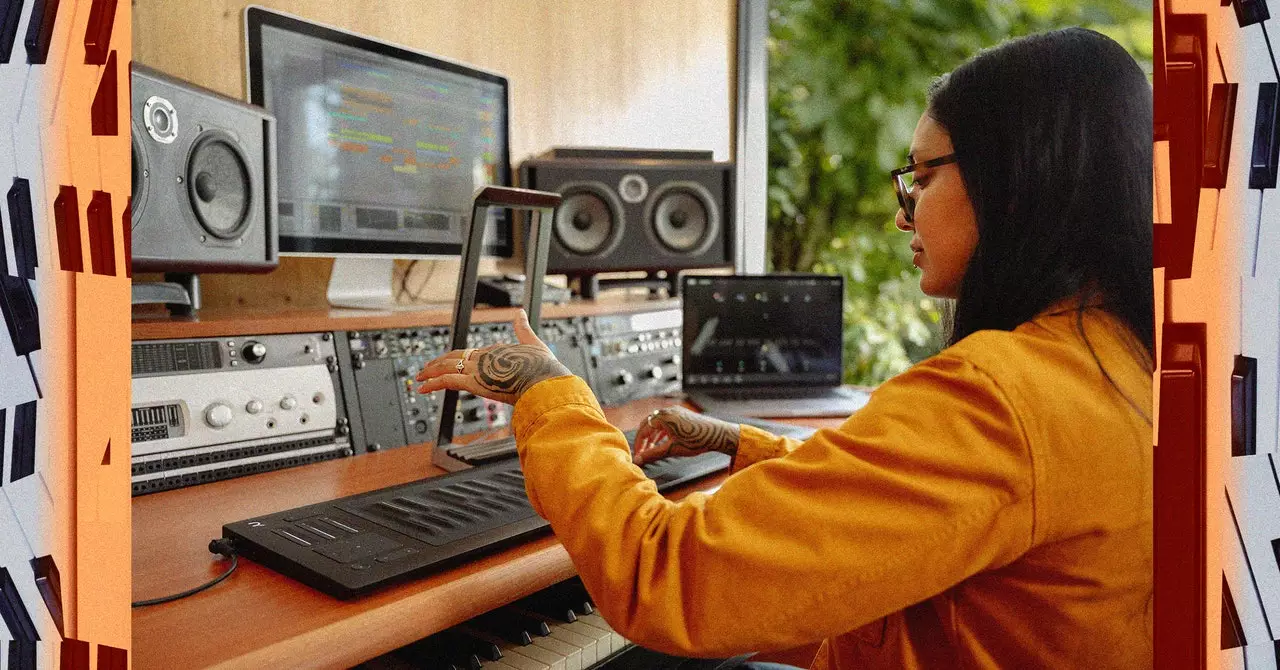The evolution of music education has taken a dramatic leap forward with the introduction of innovative technologies. One such groundbreaking development is Roli’s Airwave, an instrument that promises to enhance the learning experience for piano students. As the creative mind behind this project, Lamb emphasized the limitations that existing methods, such as Lumi, put on learners and envisions an evolution in teaching techniques that is both more interactive and efficient. This article explores the Airwave’s functionalities, its incorporation of artificial intelligence, and its potential impact on music education.
Historically, piano learning has been a painstaking process involving weeks, if not months, of practice before any noticeable progress can be made. Lamb points out a crucial flaw: despite the wealth of resources available, many students still face barriers to effective learning. The Airwave aims to bridge this divide by putting the focus back on the player’s hands through immediate and interactive lessons. The instrument is not merely a tool; it forms an integral part of a dynamic learning experience that allows students to interact directly with their lessons.
Lamb’s insights raise critical questions about the nature of learning in music: Is it simply about hitting the right notes, or does true mastery require a deeper understanding of musical concepts? Airwave seeks to address this by offering learners a platform where they can ask questions about music theory in real-time, thereby enabling them to explore different aspects of music as they practice.
What sets the Airwave apart is its incorporation of artificial intelligence, specifically through the integration of OpenAI’s ChatGPT into the Roli Learn platform. This feature facilitates a conversational experience where students can use voice commands to navigate their lessons. The ability to ask questions ranging from simple note identification to complex music theory concepts represents a significant advancement. Although it won’t provide the nuanced understanding of a live instructor, it offers a rapid-fire alternative for immediate assistance, reducing learning bottlenecks.
This engagement with AI not only streamlines the learning process but offers students a sense of autonomy. They can command the system to load songs, ask about chord structures, or even seek out the history behind popular music pieces like “Hotel California.” While online tutorials have become a common method for self-directed learners, the Airwave’s hands-on interactivity and responsive AI offer a more tailored experience.
Despite the Airwave’s advanced features, it’s essential to underscore the irreplaceable value of a traditional music instructor. A teacher does more than answer questions; they provide invaluable feedback regarding technique, positioning, and emotional interpretation. Roli, through the Airwave, seeks not to replace instructors but to fill the gaps in a student’s learning journey, especially during instances when traditional lessons are unavailable.
The balance between digital assistance and human mentorship could redefine how piano education is approached. Students wouldn’t have to rely exclusively on either traditional lessons or digital platforms; rather, they could harmonize both methods, leading to a more holistic educational experience.
The Airwave is not limited to just a learning tool—it serves as an advanced instrument for seasoned musicians. Lamb’s demonstrations showed a fascinating blend between traditional playing techniques and innovative controls provided by the Airwave, akin to the theremin. Utilizing infrared tracking allows for dynamic manipulation of various sound parameters, thereby expanding a musician’s creative possibilities.
Advanced users can effortlessly transition between playing and production, utilizing the Airwave to shape their sounds in real-time. This dual-focus not only makes the instrument a robust teaching tool but also a versatile device for music creation, therefore appealing to a broader demographic of musicians from novices to experts.
Roli’s Airwave presents a refreshing take on music education by leveraging the power of AI to enhance learning experiences. While traditional teaching remains significant, the rapid interactivity and customizable features of the Airwave open new pathways to musical mastery. As technology continues to evolve, the potential for innovation in music education is limitless, and instruments like the Airwave showcase how far we can push these boundaries. In a world where music learning can often feel stagnant, Roli’s initiative may just provide the inspiration needed for a new generation of musicians.


Leave a Reply